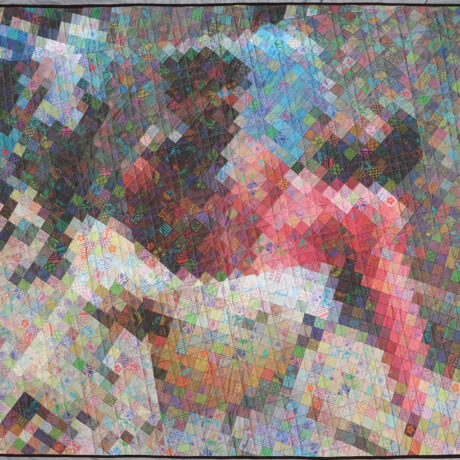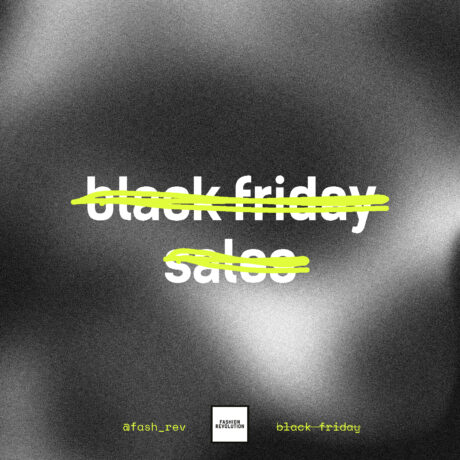In an industry of bottom lines, shareholders and cut corners, it’s refreshing to find the people who still view fashion as art. Rather than churning out millions of identical garments, there are designers who have chosen to stay true to the beauty of what fashion can truly be.
Given that these designers still have to compete (in some capacity) with the H&M’s of the world, it’s even more admirable to find those who have also integrated ethics and sustainability into their business models.
Here are 11 indie designers staying true to their art form while trying to make the industry a little better along the way.
–
Moriah Carlson and Alice Wu of Feral Childe | I only recently discovered this bi-coastal design duo, and I’m so glad I did. Moriah and Alice work from studios in Brooklyn and Oakland, respectively, and manufacture their label in NYC’s Garment District. Each garment from the line meets at least two of the sustainability guidelines listed on their website.
Julia Kastner of Eva & Paul | I was introduced to Julia over email last week and instantly devoured her website. If there’s one thing I struggle with in my own wardrobe, it’s finding sustainably-made jeans, which is why I always resort to buying a stretched out second-hand pair. Julia has found a way to produce 98 percent organic cotton jeans while keeping the price-point under $200. The rest of the materials are fair trade and everything is sewn in the USA.
Elizabeth Brunner of Piece x Piece | I’ve been a long-time fan of Elizabeth Brunner’s since first meeting her in San Francisco in the summer of 2012. Elizabeth uses sample fabric swatches that are discarded by the pounds from design houses and pieces them together to create one-of-a-kind garments. By making use of what would otherwise be waste, Elizabeth has created a stunning collection made by hand in San Francisco.
Britt Howard and Rosemary Robinson of PGF House Line | Britt and Rose are the joint-genius behind the Portland Garment Factory. I spent some time with them in 2012 while revamping the design for the “Versalette 2.0.” Although they primarily work on other designer’s products, they have found the time to put together their own line of unique designs being sold all over the country. Everything is manufactured in their self-owned factory in Portland.
Kristin Glenn of Seamly.co | My former partner-in-crime at {r}evolution apparel, Kristin now designs her own label of versatile clothing made in Denver from deadstock fabric. I swear by the Seamly high-waisted leggings (as I’ve told many of my friends), and the revamped and redesigned Versalette is still being sold under the Seamly label. In fact, another “Versalette Challenge” is kicking off next week for those of you who already own one.
Nicole Bridger of Nicole Bridger | Last year, I heard Nicole Bridger speak at ECO Fashion Week in Vancouver. She founded her company on the belief that fashion doesn’t have to sacrifice a commitment to the environment, so she puts a personal emphasis on transparency. All Nicole Bridger fabrics and materials are ethically-sourced, and are often renewable or biodegradable. Ninety percent of the collection is manufactured in Vancouver while the other 10% is produced in Fair Trade certified factories overseas.
 Betsy & Emily Nunez of Sword & Plough | I’ll never forget the splash that sisters Betsy and Emily made with the launch of their Kickstarter campaign in May 2013. With a goal of raising $20,000, their quadruple-bottom-line bag company that uses reclaimed military fabrics, raised over $300K. All S&P bags are made in the USA with upcycled materials that use 95% less energy than conventional bags.
Betsy & Emily Nunez of Sword & Plough | I’ll never forget the splash that sisters Betsy and Emily made with the launch of their Kickstarter campaign in May 2013. With a goal of raising $20,000, their quadruple-bottom-line bag company that uses reclaimed military fabrics, raised over $300K. All S&P bags are made in the USA with upcycled materials that use 95% less energy than conventional bags.
Tara St. James of Study N.Y. | Study is a sustainable womenswear label based in Brooklyn. Because it doesn’t adhere to the typical fashion calendar (which is now up to 52 seasons a year), all of the designs are seasonless. Much of the brand’s focus revolves around the story of each garment, the hands that made them, and the ethical materials that were used.
—
Although the price points of some of these brands may seem higher than you’re used to, it’s important to consider the timelessness and durability that comes with clothing that is ethically made. All of these designers create garments that will last season after season, and most will stand the test of time as the trends change.
Thank you for supporting ethical and independent design.
Reprinted with permission from Shannon Whitehead.
Photo credit: Nicole Bridger








